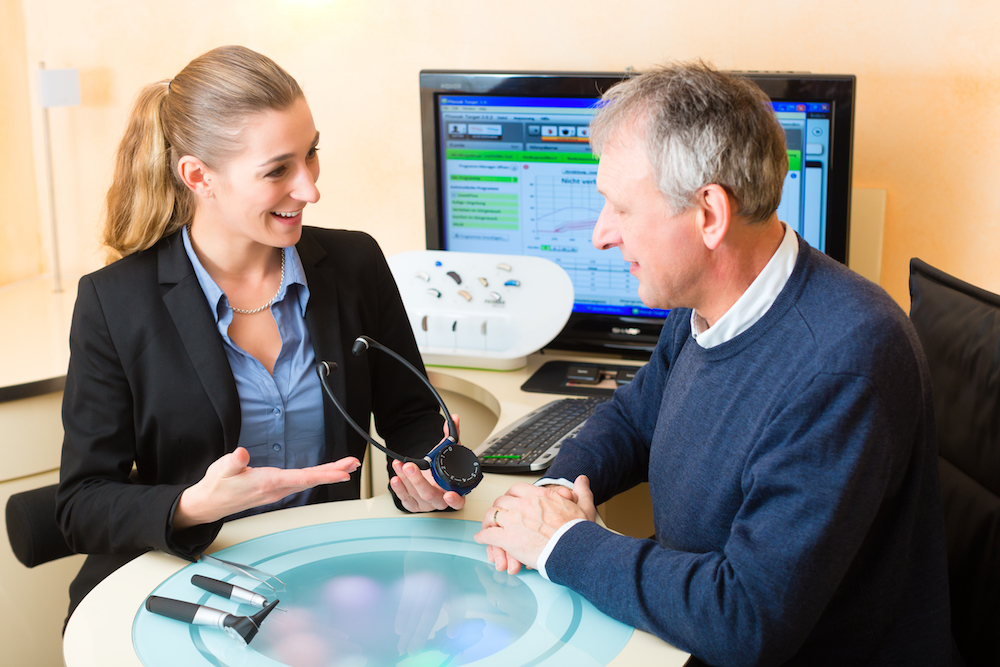How does Hearing Loss Lead to Depression?
It is true to say that in some cases, hearing loss can lead to depression.
COVID-19 UPDATE: Walk-Ins Welcome!

By: admin | June 23, 2020
One of the most important things that you have to take care of with regard to your own health is your hearing. Your hearing plays into many other aspects of your health and your life generally, and as long as you are properly looking after it you should be able to find that you are generally going to be healthier on the whole. There are a lot of things that you might need to do in order to ensure that you are looking after your hearing properly, and one of the main things is to have a diagnostic hearing evaluation carried out every now and then. In this post, we’ll look at what a diagnostic hearing evaluation is, and why you might want to think about getting one done.
The first thing to say is that a diagnostic hearing evaluation is not merely a hearing test. A normal hearing test is the kind that you might have done at your general practitioner’s office, and will merely determine whether you have some hearing in an ear or not. It is very much a yes or no question, and it doesn’t really go into any more detail than that. That type of test is useful at some times, and generally it’s an important first step – but it’s a whole other thing compared to having a full diagnostic hearing evaluation carried out, and it is important to bear in mind the distinction between the two.
As we have hinted at, a diagnostic hearing evaluation does not merely test whether you can hear well, but it is much more of a comprehensive examination of your hearing, taking into account many different aspects which you might need to consider in order to get the fullest possible picture of what your hearing is like at the present moment. It includes a series of tests, and then a full history intake afterwards, so that there is a full picture drawn up by the end of it. Your medical history is always going to play an important role in determining your hearing health, so that is why this is an important part of any full diagnostic hearing evaluation.
Once the specialist has taken your full history and put you through a range of tests, they will then discuss all of the results with you and you will have a much fuller picture of exactly where your hearing stands and what might need to be done in the future to either prevent hearing loss or ensure that it is kept to a minimum, or that it is being managed as well as possible. All of this is clearly very useful information to have.
There are many tests that you might have to do as a part of your diagnostic hearing evaluation. For instance, you might have to have an air conduction test, which is when headphones are placed over your ears and you raise your hand whenever you hear a sound that is played. The idea here is to determine how soft a sound you can hear. Or you might need to undergo a pure tone bone conduction, which measures the nerve directly, and is the same kind of instruction as the previous test. In this way, you are having different elements of your hearing anatomy checked thoroughly and in turn, to determine if there are any problems with any of them. Or you might have speech testing too, where you need to repeat words recorded at various volumes, which helps to measure your own audibility and the clarity of your speech, which is related closely to hearing.
Sometimes there will be something known as a tympanometry, which measures the movement of the eardrum and the ability of the middle ear to conduct sound to the inner ear, which is clearly another important part of the hearing process in any case.
As you can see, it is a thorough series of tests, and you will have a full picture by the end of it of what your hearing is really like and whether you need assistance. The question now is when you should have such an evaluation done. Generally, you will be referred if you have gone to your doctor with hearing problems, and that is the best time to do it. But if you like you can also have this done once a year just to make sure everything is okay. You can learn more about this by contacting the AA Hearing Aid Center Inc. at 203-348-2271.

It is true to say that in some cases, hearing loss can lead to depression.
By: admin | September 21, 2020

Hearing aids require batteries to work, which means that you are going to
By: admin | August 18, 2020

Tinnitus can be a condition that may cause discomfort. It is a condition
By: admin | July 27, 2020
